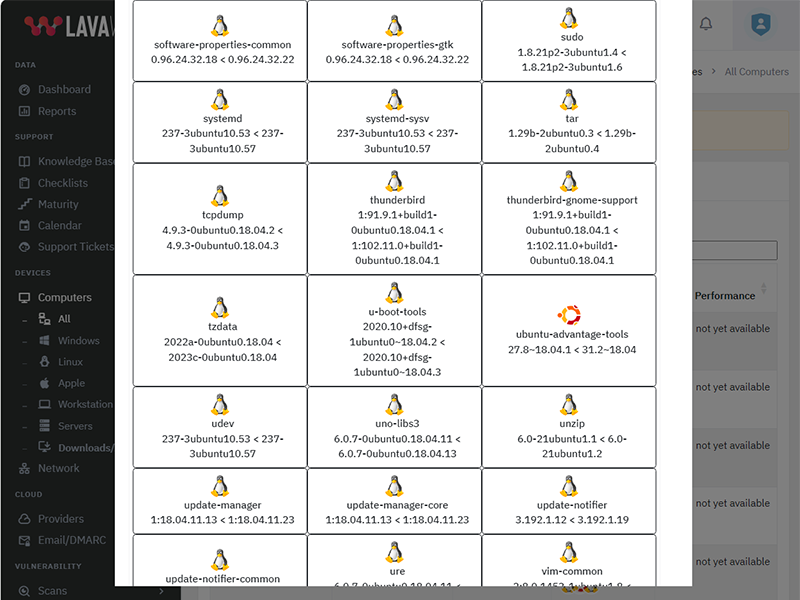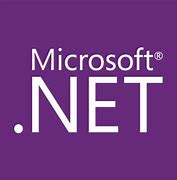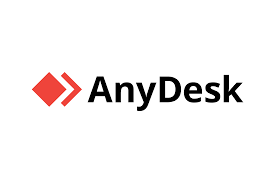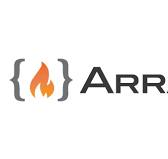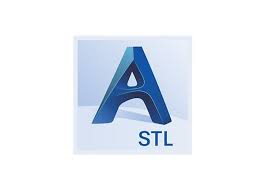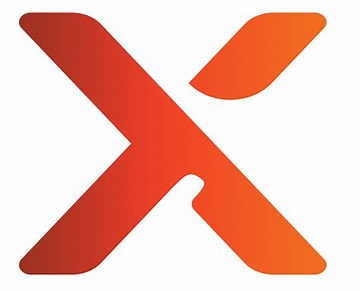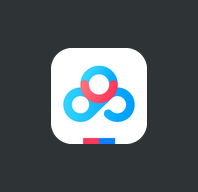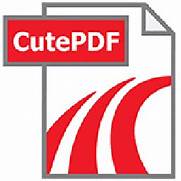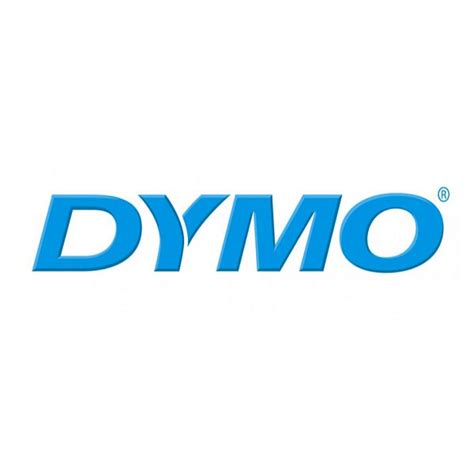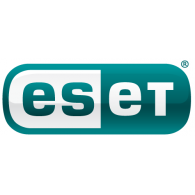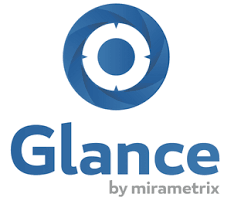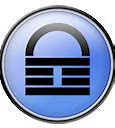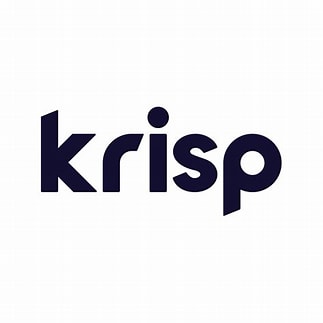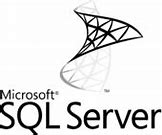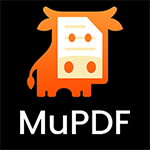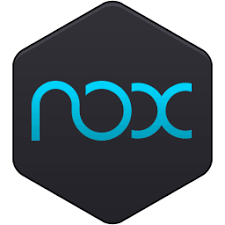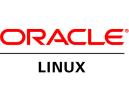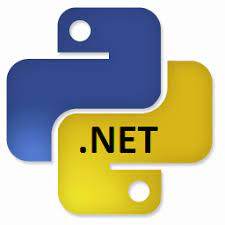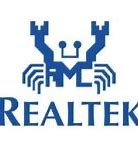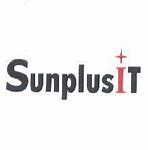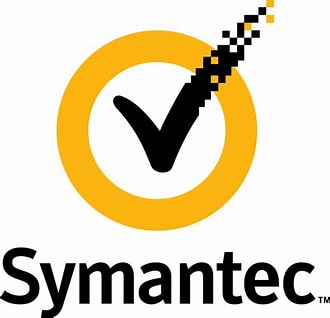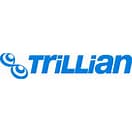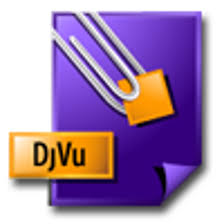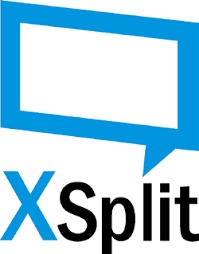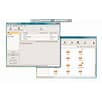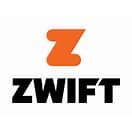
Update OpenOffice to version 4.115.9813
What patches are you missing?
CVE Vulnerabilities for OpenOffice
| CVE | Published | Severity | Details | Exploitability | Impact | Vector |
| CVE‑2025‑64407 | 2025‑11‑12 10:15:44 | MEDIUM (5) | Apache OpenOffice documents can contain links. A missing Authorization vulnerability in Apache OpenOffice allowed an attacker to craft a document that would cause external links to be loaded without prompt. Such links could also be used to transmit system information, such as environment variables or configuration settings. In the affected versions of Apache OpenOffice, documents that used a certain URI scheme linking to external files would load the contents of such files without prompting the user for permission to do so. Such URI scheme allows to include system configuration data, that is not supposed to be transmitted externally. This issue affects Apache OpenOffice: through 4.1.15. Users are recommended to upgrade to version 4.1.16, which fixes the issue. The LibreOffice suite reported this issue as CVE-2024-12426. | 4 | 1 | NETWORK |
| CVE‑2025‑64406 | 2025‑11‑12 09:15:42 | MEDIUM (4) | An out-of-bounds Write vulnerability in Apache OpenOffice could allow an attacker to craft a document that would crash the program, or otherwise corrupt other memory areas. This issue affects Apache OpenOffice: through 4.1.15. Users are recommended to upgrade to version 4.1.16, which fixes the issue. | 3 | 1 | NETWORK |
| CVE‑2025‑64405 | 2025‑11‑12 09:15:42 | HIGH (8) | Apache OpenOffice documents can contain links. A missing Authorization vulnerability in Apache OpenOffice allowed an attacker to craft a document that would cause external links to be loaded without prompt. In the affected versions of Apache OpenOffice, Calc spreadsheet containing DDE links to external files would load the contents of those files without prompting the user for permission to do so. This issue affects Apache OpenOffice: through 4.1.15. Users are recommended to upgrade to version 4.1.16, which fixes the issue. | 4 | 4 | NETWORK |
| CVE‑2025‑64404 | 2025‑11‑12 09:15:41 | HIGH (8) | Apache OpenOffice documents can contain links to other files. A missing Authorization vulnerability in Apache OpenOffice allowed an attacker to craft a document that would cause external links to be loaded without prompt. In the affected versions of Apache OpenOffice, documents that used background fill images, or bullet images, linked to external files would load the contents of those files without prompting the user for permission to do so. This issue affects Apache OpenOffice: through 4.1.15. Users are recommended to upgrade to version 4.1.16, which fixes the issue. | 4 | 4 | NETWORK |
| CVE‑2025‑64403 | 2025‑11‑12 09:15:41 | HIGH (8) | Apache OpenOffice Calc spreadsheet can contain links to other files, in the form of "external data sources". A missing Authorization vulnerability in Apache OpenOffice allowed an attacker to craft a document that would cause such links to be loaded without prompt. This issue affects Apache OpenOffice: through 4.1.15. Users are recommended to upgrade to version 4.1.16, which fixes the issue. | 3 | 5 | NETWORK |
| CVE‑2025‑64402 | 2025‑11‑12 09:15:41 | MEDIUM (7) | Apache OpenOffice documents can contain links. A missing Authorization vulnerability in Apache OpenOffice allowed an attacker to craft a document that would cause external links to be loaded without prompt. In the affected versions of Apache OpenOffice, documents that used "OLE objects" linked to external files would load the contents of those files without prompting the user for permission to do so. This issue affects Apache OpenOffice: through 4.1.15. Users are recommended to upgrade to version 4.1.16, which fixes the issue. | 3 | 4 | NETWORK |
| CVE‑2025‑64401 | 2025‑11‑12 09:15:41 | HIGH (8) | Apache OpenOffice documents can contain links. A missing Authorization vulnerability in Apache OpenOffice allowed an attacker to craft a document that would cause external links to be loaded without prompt. In the affected versions of Apache OpenOffice, documents that used "floating frames" linked to external files would load the contents of those frames without prompting the user for permission to do so. This issue affects Apache OpenOffice: through 4.1.15. Users are recommended to upgrade to version 4.1.16, which fixes the issue. The LibreOffice suite reported this issue as CVE-2023-2255 | 4 | 4 | NETWORK |
| CVE‑2023‑47804 | 2023‑12‑29 15:15:09 | HIGH (9) | Apache OpenOffice documents can contain links that call internal macros with arbitrary arguments. Several URI Schemes are defined for this purpose. Links can be activated by clicks, or by automatic document events. The execution of such links must be subject to user approval. In the affected versions of OpenOffice, approval for certain links is not requested; when activated, such links could therefore result in arbitrary script execution. This is a corner case of CVE-2022-47502. | 3 | 6 | NETWORK |
| CVE‑2022‑47502 | 2023‑03‑24 16:15:08 | HIGH (8) | Apache OpenOffice documents can contain links that call internal macros with arbitrary arguments. Several URI Schemes are defined for this purpose. Links can be activated by clicks, or by automatic document events. The execution of such links must be subject to user approval. In the affected versions of OpenOffice, approval for certain links is not requested; when activated, such links could therefore result in arbitrary script execution. | 2 | 6 | LOCAL |
| CVE‑2022‑38745 | 2023‑03‑24 16:15:08 | HIGH (8) | Apache OpenOffice versions before 4.1.14 may be configured to add an empty entry to the Java class path. This may lead to run arbitrary Java code from the current directory. | 2 | 6 | LOCAL |
| CVE‑2022‑37401 | 2022‑08‑15 11:21:42 | HIGH (9) | Apache OpenOffice supports the storage of passwords for web connections in the user's configuration database. The stored passwords are encrypted with a single master key provided by the user. A flaw in OpenOffice existed where master key was poorly encoded resulting in weakening its entropy from 128 to 43 bits making the stored passwords vulnerable to a brute force attack if an attacker has access to the users stored config. This issue affects: Apache OpenOffice versions prior to 4.1.13. Reference: CVE-2022-26307 - LibreOffice | 3 | 6 | NETWORK |
| CVE‑2022‑37400 | 2022‑08‑15 11:21:42 | HIGH (9) | Apache OpenOffice supports the storage of passwords for web connections in the user's configuration database. The stored passwords are encrypted with a single master key provided by the user. A flaw in OpenOffice existed where the required initialization vector for encryption was always the same which weakens the security of the encryption making them vulnerable if an attacker has access to the user's configuration data. This issue affects: Apache OpenOffice versions prior to 4.1.13. Reference: CVE-2022-26306 - LibreOffice | 3 | 6 | NETWORK |
| CVE‑2021‑41832 | 2021‑10‑11 08:15:07 | HIGH (8) | It is possible for an attacker to manipulate documents to appear to be signed by a trusted source. All versions of Apache OpenOffice up to 4.1.10 are affected. Users are advised to update to version 4.1.11. See CVE-2021-25635 for the LibreOffice advisory. | 4 | 4 | NETWORK |
| CVE‑2021‑41831 | 2021‑10‑11 08:15:07 | MEDIUM (5) | It is possible for an attacker to manipulate the timestamp of signed documents. All versions of Apache OpenOffice up to 4.1.10 are affected. Users are advised to update to version 4.1.11. See CVE-2021-25634 for the LibreOffice advisory. | 4 | 1 | NETWORK |
| CVE‑2021‑41830 | 2021‑10‑11 08:15:07 | HIGH (8) | It is possible for an attacker to manipulate signed documents and macros to appear to come from a trusted source. All versions of Apache OpenOffice up to 4.1.10 are affected. Users are advised to update to version 4.1.11. See CVE-2021-25633 for the LibreOffice advisory. | 4 | 4 | NETWORK |
| CVE‑2021‑40439 | 2021‑10‑07 16:15:09 | MEDIUM (7) | Apache OpenOffice has a dependency on expat software. Versions prior to 2.1.0 were subject to CVE-2013-0340 a "Billion Laughs" entity expansion denial of service attack and exploit via crafted XML files. ODF files consist of a set of XML files. All versions of Apache OpenOffice up to 4.1.10 are subject to this issue. expat in version 4.1.11 is patched. | 3 | 4 | NETWORK |
| CVE‑2021‑33035 | 2021‑09‑23 08:15:07 | HIGH (8) | Apache OpenOffice opens dBase/DBF documents and shows the contents as spreadsheets. DBF are database files with data organized in fields. When reading DBF data the size of certain fields is not checked: the data is just copied into local variables. A carefully crafted document could overflow the allocated space, leading to the execution of arbitrary code by altering the contents of the program stack. This issue affects Apache OpenOffice up to and including version 4.1.10 | 2 | 6 | LOCAL |
| CVE‑2021‑30245 | 2021‑04‑15 20:15:12 | HIGH (9) | The project received a report that all versions of Apache OpenOffice through 4.1.8 can open non-http(s) hyperlinks. The problem has existed since about 2006 and the issue is also in 4.1.9. If the link is specifically crafted this could lead to untrusted code execution. It is always best practice to be careful opening documents from unknown and unverified sources. The mitigation in Apache OpenOffice 4.1.10 (unreleased) assures that a security warning is displayed giving the user the option of continuing to open the hyperlink. | 3 | 6 | NETWORK |
| CVE‑2021‑28129 | 2021‑10‑07 16:15:08 | HIGH (8) | While working on Apache OpenOffice 4.1.8 a developer discovered that the DEB package did not install using root, but instead used a userid and groupid of 500. This both caused issues with desktop integration and could allow a crafted attack on files owned by that user or group if they exist. Users who installed the Apache OpenOffice 4.1.8 DEB packaging should upgrade to the latest version of Apache OpenOffice. | 2 | 6 | LOCAL |
| CVE‑2020‑13958 | 2020‑11‑17 16:15:12 | HIGH (8) | A vulnerability in Apache OpenOffice scripting events allows an attacker to construct documents containing hyperlinks pointing to an executable on the target users file system. These hyperlinks can be triggered unconditionally. In fixed versions no internal protocol may be called from the document event handler and other hyperlinks require a control-click. | 2 | 6 | LOCAL |
| CVE‑2018‑11790 | 2019‑01‑31 16:29:00 | MEDIUM (5) | When loading a document with Apache Open Office 4.1.5 and earlier with smaller end line termination than the operating system uses, the defect occurs. In this case OpenOffice runs into an Arithmetic Overflow at a string length calculation. | 0 | 0 | LOCAL |
| CVE‑2018‑10583 | 2018‑05‑01 16:29:00 | MEDIUM (5) | An information disclosure vulnerability occurs when LibreOffice 6.0.3 and Apache OpenOffice Writer 4.1.5 automatically process and initiate an SMB connection embedded in a malicious file, as demonstrated by xlink:href=file://192.168.0.2/test.jpg within an office:document-content element in a .odt XML document. | 0 | 0 | NETWORK |
| CVE‑2017‑9806 | 2017‑11‑20 17:29:00 | HIGH (8) | A vulnerability in the OpenOffice Writer DOC file parser before 4.1.4, and specifically in the WW8Fonts Constructor, allows attackers to craft malicious documents that cause denial of service (memory corruption and application crash) potentially resulting in arbitrary code execution. | 2 | 6 | LOCAL |
| CVE‑2017‑3157 | 2017‑11‑20 20:29:01 | MEDIUM (4) | By exploiting the way Apache OpenOffice before 4.1.4 renders embedded objects, an attacker could craft a document that allows reading in a file from the user's filesystem. Information could be retrieved by the attacker by, e.g., using hidden sections to store the information, tricking the user into saving the document and convincing the user to send the document back to the attacker. The vulnerability is mitigated by the need for the attacker to know the precise file path in the target system, and the need to trick the user into saving the document and sending it back. | 0 | 0 | NETWORK |
| CVE‑2017‑12608 | 2017‑11‑20 20:29:00 | HIGH (8) | A vulnerability in Apache OpenOffice Writer DOC file parser before 4.1.4, and specifically in ImportOldFormatStyles, allows attackers to craft malicious documents that cause denial of service (memory corruption and application crash) potentially resulting in arbitrary code execution. | 2 | 6 | LOCAL |
| CVE‑2017‑12607 | 2017‑11‑20 19:29:00 | HIGH (8) | A vulnerability in OpenOffice's PPT file parser before 4.1.4, and specifically in PPTStyleSheet, allows attackers to craft malicious documents that cause denial of service (memory corruption and application crash) potentially resulting in arbitrary code execution. | 2 | 6 | LOCAL |
| CVE‑2016‑6804 | 2017‑11‑20 15:29:00 | HIGH (8) | The Apache OpenOffice installer (versions prior to 4.1.3, including some branded as OpenOffice.org) for Windows contains a defective operation that allows execution of arbitrary code with elevated privileges. This requires that the location in which the installer is run has been previously poisoned by a file that impersonates a dynamic-link library that the installer depends upon. | 2 | 6 | LOCAL |
| CVE‑2016‑6803 | 2017‑11‑13 14:29:00 | HIGH (9) | An installer defect known as an "unquoted Windows search path vulnerability" affected the Apache OpenOffice before 4.1.3 installers for Windows. The PC must have previously been infected by a Trojan Horse application (or user) running with administrative privilege. Any installer with the unquoted search path vulnerability becomes a delayed trigger for the exploit. | 0 | 0 | NETWORK |
| CVE‑2016‑1513 | 2016‑08‑05 14:59:00 | MEDIUM (7) | The Impress tool in Apache OpenOffice 4.1.2 and earlier allows remote attackers to cause a denial of service (out-of-bounds read or write) or execute arbitrary code via crafted MetaActions in an (1) ODP or (2) OTP file. | 0 | 0 | NETWORK |
| CVE‑2015‑5214 | 2015‑11‑10 17:59:04 | MEDIUM (7) | LibreOffice before 4.4.6 and 5.x before 5.0.1 and Apache OpenOffice before 4.1.2 allows remote attackers to cause a denial of service (memory corruption and application crash) or execute arbitrary code via an index to a non-existent bookmark in a DOC file. | 0 | 0 | NETWORK |
| CVE‑2015‑5213 | 2015‑11‑10 17:59:03 | MEDIUM (7) | Integer overflow in LibreOffice before 4.4.5 and Apache OpenOffice before 4.1.2 allows remote attackers to cause a denial of service (memory corruption and application crash) or possibly execute arbitrary code via a long DOC file, which triggers a buffer overflow. | 0 | 0 | NETWORK |
| CVE‑2015‑5212 | 2015‑11‑10 17:59:02 | MEDIUM (7) | Integer underflow in LibreOffice before 4.4.5 and Apache OpenOffice before 4.1.2, when the configuration setting "Load printer settings with the document" is enabled, allows remote attackers to cause a denial of service (memory corruption and application crash) or possibly execute arbitrary code via crafted PrinterSetup data in an ODF document. | 0 | 0 | NETWORK |
| CVE‑2015‑4551 | 2015‑11‑10 17:59:00 | MEDIUM (4) | LibreOffice before 4.4.5 and Apache OpenOffice before 4.1.2 uses the stored LinkUpdateMode configuration information in OpenDocument Format files and templates when handling links, which might allow remote attackers to obtain sensitive information via a crafted document, which embeds data from local files into (1) Calc or (2) Writer. | 0 | 0 | NETWORK |
| CVE‑2015‑1774 | 2015‑04‑28 14:59:00 | MEDIUM (7) | The HWP filter in LibreOffice before 4.3.7 and 4.4.x before 4.4.2 and Apache OpenOffice before 4.1.2 allows remote attackers to cause a denial of service (crash) or possibly execute arbitrary code via a crafted HWP document, which triggers an out-of-bounds write. | 0 | 0 | NETWORK |
| CVE‑2014‑3575 | 2014‑08‑27 00:55:04 | MEDIUM (4) | The OLE preview generation in Apache OpenOffice before 4.1.1 and OpenOffice.org (OOo) might allow remote attackers to embed arbitrary data into documents via crafted OLE objects. | 0 | 0 | NETWORK |
| CVE‑2014‑3524 | 2014‑08‑26 14:55:06 | HIGH (9) | Apache OpenOffice before 4.1.1 allows remote attackers to execute arbitrary commands and possibly have other unspecified impact via a crafted Calc spreadsheet. | 0 | 0 | NETWORK |
| CVE‑2013‑4156 | 2013‑07‑31 13:20:29 | MEDIUM (7) | Apache OpenOffice.org (OOo) before 4.0 allows remote attackers to cause a denial of service (memory corruption) or possibly have unspecified other impact via a crafted element in an OOXML document file. | 0 | 0 | NETWORK |
| CVE‑2013‑2189 | 2013‑07‑31 13:20:25 | MEDIUM (7) | Apache OpenOffice.org (OOo) before 4.0 allows remote attackers to cause a denial of service (memory corruption) or possibly have unspecified other impact via invalid PLCF data in a DOC document file. | 0 | 0 | NETWORK |
| CVE‑2012‑5639 | 2019‑12‑20 14:15:11 | MEDIUM (7) | LibreOffice and OpenOffice automatically open embedded content | 3 | 4 | NETWORK |
| CVE‑2012‑2665 | 2012‑08‑06 18:55:01 | HIGH (8) | Multiple heap-based buffer overflows in the XML manifest encryption tag parsing functionality in OpenOffice.org and LibreOffice before 3.5.5 allow remote attackers to cause a denial of service and possibly execute arbitrary code via a crafted Open Document Text (.odt) file with (1) a child tag within an incorrect parent tag, (2) duplicate tags, or (3) a Base64 ChecksumAttribute whose length is not evenly divisible by four. | 0 | 0 | NETWORK |
| CVE‑2012‑0037 | 2012‑06‑17 03:41:40 | MEDIUM (7) | Redland Raptor (aka libraptor) before 2.0.7, as used by OpenOffice 3.3 and 3.4 Beta, LibreOffice before 3.4.6 and 3.5.x before 3.5.1, and other products, allows user-assisted remote attackers to read arbitrary files via a crafted XML external entity (XXE) declaration and reference in an RDF document. | 3 | 4 | NETWORK |
| CVE‑2011‑2177 | 2019‑11‑27 17:15:14 | HIGH (8) | OpenOffice.org v3.3 allows execution of arbitrary code with the privileges of the user running the OpenOffice.org suite tools. | 2 | 6 | LOCAL |
| CVE‑2010‑4643 | 2011‑01‑28 22:00:06 | HIGH (9) | Heap-based buffer overflow in Impress in OpenOffice.org (OOo) 2.x and 3.x before 3.3 allows remote attackers to cause a denial of service (application crash) or possibly execute arbitrary code via a crafted Truevision TGA (TARGA) file in an ODF or Microsoft Office document. | 0 | 0 | NETWORK |
| CVE‑2010‑4494 | 2010‑12‑07 21:00:10 | HIGH (8) | Double free vulnerability in libxml2 2.7.8 and other versions, as used in Google Chrome before 8.0.552.215 and other products, allows remote attackers to cause a denial of service or possibly have unspecified other impact via vectors related to XPath handling. | 0 | 0 | NETWORK |
| CVE‑2010‑4253 | 2011‑01‑28 22:00:06 | HIGH (9) | Heap-based buffer overflow in Impress in OpenOffice.org (OOo) 2.x and 3.x before 3.3 allows remote attackers to cause a denial of service (application crash) or possibly execute arbitrary code via a crafted PNG file in an ODF or Microsoft Office document, as demonstrated by a PowerPoint (aka PPT) document. | 0 | 0 | NETWORK |
| CVE‑2010‑4008 | 2010‑11‑17 01:00:03 | MEDIUM (4) | libxml2 before 2.7.8, as used in Google Chrome before 7.0.517.44, Apple Safari 5.0.2 and earlier, and other products, reads from invalid memory locations during processing of malformed XPath expressions, which allows context-dependent attackers to cause a denial of service (application crash) via a crafted XML document. | 0 | 0 | NETWORK |
| CVE‑2010‑3689 | 2011‑01‑28 22:00:06 | MEDIUM (7) | soffice in OpenOffice.org (OOo) 3.x before 3.3 places a zero-length directory name in the LD_LIBRARY_PATH, which allows local users to gain privileges via a Trojan horse shared library in the current working directory. | 0 | 0 | LOCAL |
| CVE‑2010‑3454 | 2011‑01‑28 22:00:05 | HIGH (9) | Multiple off-by-one errors in the WW8DopTypography::ReadFromMem function in oowriter in OpenOffice.org (OOo) 2.x and 3.x before 3.3 allow remote attackers to cause a denial of service (application crash) or possibly execute arbitrary code via crafted typography information in a Microsoft Word .DOC file that triggers an out-of-bounds write. | 0 | 0 | NETWORK |
| CVE‑2010‑3453 | 2011‑01‑28 22:00:05 | HIGH (9) | The WW8ListManager::WW8ListManager function in oowriter in OpenOffice.org (OOo) 2.x and 3.x before 3.3 does not properly handle an unspecified number of list levels in user-defined list styles in WW8 data in a Microsoft Word document, which allows remote attackers to cause a denial of service (application crash) or possibly execute arbitrary code via a crafted .DOC file that triggers an out-of-bounds write. | 0 | 0 | NETWORK |
| CVE‑2010‑3452 | 2011‑01‑28 22:00:05 | HIGH (9) | Use-after-free vulnerability in oowriter in OpenOffice.org (OOo) 2.x and 3.x before 3.3 allows remote attackers to cause a denial of service (application crash) or possibly execute arbitrary code via crafted tags in an RTF document. | 0 | 0 | NETWORK |
| CVE‑2010‑3451 | 2011‑01‑28 22:00:05 | HIGH (9) | Use-after-free vulnerability in oowriter in OpenOffice.org (OOo) 2.x and 3.x before 3.3 allows remote attackers to cause a denial of service (application crash) or possibly execute arbitrary code via malformed tables in an RTF document. | 0 | 0 | NETWORK |
| CVE‑2010‑3450 | 2011‑01‑28 22:00:05 | HIGH (9) | Multiple directory traversal vulnerabilities in OpenOffice.org (OOo) 2.x and 3.x before 3.3 allow remote attackers to overwrite arbitrary files via a .. (dot dot) in an entry in (1) an XSLT JAR filter description file, (2) an Extension (aka OXT) file, or unspecified other (3) JAR or (4) ZIP files. | 0 | 0 | NETWORK |
| CVE‑2010‑0395 | 2010‑06‑10 00:30:07 | HIGH (9) | OpenOffice.org 2.x and 3.0 before 3.2.1 allows user-assisted remote attackers to bypass Python macro security restrictions and execute arbitrary Python code via a crafted OpenDocument Text (ODT) file that triggers code execution when the macro directory structure is previewed. | 0 | 0 | NETWORK |
| CVE‑2010‑0136 | 2010‑02‑16 19:30:01 | HIGH (9) | OpenOffice.org (OOo) 2.0.4, 2.4.1, and 3.1.1 does not properly enforce Visual Basic for Applications (VBA) macro security settings, which allows remote attackers to run arbitrary macros via a crafted document. | 0 | 0 | NETWORK |


Get the IT stuff done that nobody wants to do.
Patch more applications, achieve compliance, and prevent problems while reducing stress with Lavawall®.
Security First
A security tool by security auditors. From Passkeys and Argon2i to source validation and MVSP principles, Lavawall® has you covered.
Constant Improvement
More features and more security added nearly every day.
More patchable programs added every week
While Ninite and other patching tools have had the same patch offerings for decades, we're monitoring stats to keep adding the most useful prorgams.
Details matter
From wrapping TLS communications in extra encryption and uninstalling remote support tools when they aren't used to detailed statistical analysis of system and network performance, Lavawall® goes in-depth.
Chromium extensions and Notification Validation
Lavawall®p; goes beyond patches and breach detection. We also monitor for risky Chromium extensions and allowed notifications that might be part of a phishing or ransomware attack.
Extended Cloud Security
Extend the security features of Cloudflare, Microsoft, Google, Sophos, and other cloud providers to create a Lavawall® of protection
Secure Remote Management
Even if you used breached remote management tools like ScreenConnect through Lavawall® when it was vulnerable, your computers stayed safe because we only install the agent when it needs to be used.
Integrations and automation
Easily deploy, monitor, and analyze security tools like Huntress, AutoElevate, and Sophos. Magically gain details from ZenDesk, ConnectWise, Datto, Panorama9, Microsoft, and Google.
Human and automated support
Get immediate fixes, user notifications, admin notifications -- and even security-certified human level 3 support when our advanced statistical analysis confirms a problem or anomaly.
| 2025‑10‑02 | 1.0.82.360 | Processes and Packages improvements |
| 2025‑09‑23 | 1.0.79.357 | |
| 2025‑07‑16 | 1.0.42.320 | |
| 2025‑06‑13 | 1.0.14.292 | |
| 2025‑06‑03 | 1.0.2.280 | |
| 2025‑05‑12 | 0.12.77.264 | |
| 2025‑05‑07 | 0.12.76.263 | add tpm complience check and ensure consistent memory gathering in windows/linux/mac |
| 2025‑05‑05 | 0.12.74.261 | add tpm complience check and ensure consistent memory gathering in windows/linux/mac |
| 2025‑04‑23 | 0.12.68.255 | Uninstallation and update refinements |
| 2025‑04‑17 | 0.12.66.253 | Reliability improvements |
| 2025‑04‑15 | 0.12.65.252 | |
| 2025‑03‑27 | 0.12.64.251 | Add efficiency to package management system |
| 2025‑03‑10 | 0.12.60.247 | |
| 2025‑03‑04 | 0.12.58.245 | |
| 2025‑03‑03 | 0.12.57.244 | Add TPM complience check and ensure consistent memory gathering in windows/linux/mac |
| 2025‑02‑28 | 0.12.56.243 | Windows RAM reporting and persistent scalability framework enhancements |
| 2025‑02‑27 | 0.12.55.242 | Battery health refinements |
| 2025‑02‑26 | 0.12.54.241 | Add battery health statistics |
| 2025‑02‑26 | 0.12.53.240 | |
| 2025‑01‑29 | 0.12.35.222 | Risk score refinements |
| 2025‑01‑17 | 0.12.29.216 | Enhanced compliance and non-standard AV |
| 2025‑01‑13 | 0.12.28.215 | Improved process graphs |
| 2025‑01‑07 | 0.12.27.214 | Antivirus details, compliance |
| 2024‑12‑27 | 0.12.24.211 | |
| 2024‑12‑02 | 0.12.19.206 | |
| 2024‑11‑22 | 0.12.18.205 | |
| 2024‑10‑30 | 0.12.8.195 | Mac update refinements |
| 2024‑10‑25 | 0.12.3.190 | |
| 2024‑10‑21 | 0.12.0.187 | Macos implementaiton, linux and windows improvements |
| 2024‑10‑16 | 0.11.128.186 | Linux stats and system information improvements, improvements for application shutdown |
| 2024‑09‑12 | 0.11.113.171 | CPU Optimizations and Packages reliability improvements |
| 2024‑09‑05 | 0.11.106.164 | Phased deployment enhancements |
| 2024‑09‑04 | 0.11.103.161 | |
| 2024‑09‑02 | 0.11.102.160 | CPU Optimizations and Packages reliability improvements |
| 2024‑08‑30 | 0.11.99.157 | CPU Optimizations and Packages reliability improvements |
| 2024‑08‑29 | 0.11.98.156 | CPU utilization and console event optimization |
| 2024‑08‑28 | 0.11.97.155 | Reliability to detect unusual updates like redistributables. |
| 2024‑08‑27 | 0.11.96.154 | |
| 2024‑08‑26 | 0.11.95.153 | Faster response for reboot requests |
| 2024‑08‑20 | 0.11.92.150 | Additional package upgrade pre-requisites |
| 2024‑08‑15 | 0.11.89.147 | |
| 2024‑08‑06 | 0.11.87.145 | |
| 2024‑07‑26 | 0.11.83.141 | Add resiliency for MAC duplicates and uptime |
| 2024‑07‑25 | 0.11.82.140 | Changes to facilitate cross-platform use. Bitlocker and Windows key refinements |
| 2024‑07‑15 | 0.11.80.138 | Antivirus and temperature added to configuration checks |
| 2024‑07‑15 | 0.11.79.137 | Add configuration checks for execution policy and secure boot |
| 2024‑07‑11 | 0.11.77.135 | load balancing refinements |
| 2024‑07‑10 | 0.11.76.134 | Add additional load balancing and data residency capabilities, add randomness to recurring task timings to decrease server load |
| 2024‑07‑05 | 0.11.74.132 | changes to graph and residual work on user imporsonation |
| 2024‑07‑04 | 0.11.73.131 | Add configuration checks for execution policy and secure boot. |
| 2024‑05‑20 | 253 | Added cleanup of old .json files during a re-install |
| 2024‑05‑13 | 252 | Added apt-get update to install |
| 2024‑05‑06 | 248 | Allow restart to use /var/run/reboot-required if needrestart is not installed |
| 2024‑04‑22 | 239 | Improve internal update and version tracking |
| 2024‑04‑15 | 235 | Add support for Yum packages |
| 2024‑04‑08 | 233 | Align patching with Windows patch reporting |
| 2024‑04‑02 | 228 | Add support for needrestart |
| 2024‑03‑04 | 224 | Schedule restarts |
| 2024‑03‑25 | 221 | Add support for apt packages |
| 2024‑03‑18 | 212 | Implement release management |
| 2024‑03‑11 | 202 | Add user login monitoring |
| 2024‑03‑04 | 189 | Enhance installation reliability |
| 2024‑02‑26 | 187 | Exapand triggers to identify if the instance needs to be restarted |
| 2024‑02‑19 | 146 | Improve compatibility for non-AWS instances |
| 2024‑02‑14 | 138 | Add self-uninstall capabilities |
| 2024‑02‑12 | 135 | Enhance scheduling flexibility |
| 2024‑02‑07 | 132 | Add kernel version tracking |
| 2024‑02‑05 | 124 | Add device hash to cryptographic self-update script validation |
| 2024‑01‑29 | 107 | Enhance encryption of patch data |
| 2024‑01‑22 | 98 | Improve how available storage is calculated |
| 2024‑01‑15 | 97 | Move initial tasks from installation file to sub scripts |
| 2024‑05‑21 | 91 | Improve multi-distribution compatibility |
| 2024‑05‑21 | 79 | Improve encryption reliability |
| 2023‑12‑11 | 68 | Enhance cryptographic validation of new scripts before updating |
| 2023‑11‑20 | 62 | Add inner layer of AES encryption in case TLS inspection doesn't allow for a secure connection |
| 2023‑11‑27 | 56 | Additional base cases for resiliancy |
| 2023‑11‑20 | 54 | Additional headers added to authentication process during installation. |
| 2023‑11‑20 | 53 | Enhanced key management |
| 2023‑11‑15 | 51 | Add insecure installation parameter to allow installation in environments with TLS inspection or other machine-in-the-middle situations. |
| 2023‑11‑06 | 42 | Enhance redundant encryption during installation. |
| 2023‑10‑30 | 33 | Improve install-over compatibility |
| 2023‑10‑23 | 18 | Add reboot configuration and scheduling |
| 2023‑10‑23 | 17 | Add self-updating functionality. |
| 2023‑10‑16 | 15 | Add Linux patching information for apt |
| 2023‑10‑09 | 14 | Collect system information |
| 2023‑10‑09 | 13 | Add Linux distribution information |
| 2023‑09‑30 | 12 | Add memory monitoring |
| 2023‑09‑30 | 10 | Add hardware information |
| 2023‑09‑23 | 9 | Add AWS information |
| 2023‑09‑23 | 8 | Add customized schedule capability for configuration updates |
| 2023‑09‑23 | 7 | Add support for package monitoring using package and dpkg logs |
| 2023‑09‑16 | 6 | Add storage data configuration gathering |
| 2023‑09‑16 | 5 | Add CPU information |
Lavawall® was built from the ground up with these concerns and the Minimum Viable Secure Product requirements in mind.
Some of the controls we implemented include:
- PassKeys as the preferred primary authentication at no additional cost
- Single Sign-on using modern, maintained, and industry-standard protocols for all customers at no additional cost
- Multi-Factor Authentication as a non-negotiable default
- Encrypting communications the same way as TLS again within the TLS tunnel, so we can allow TLS inspection without breaking like Huntress or disclosing security vulnerabilities to eavesdroppers.
- Encouraging external vulnerability reports and customer testing
- Passwords checked against popular disclosed passwords, hashed before they leave your computer, and then stored using Argon2id
- Not requiring the use of passwords at all. We consider them a temporary backup authentication in case you can't use passkeys or SSO.
Lavawall® databases and front-end systems are hosted with AWS in Montréal, Québec, Canada.
We send emails through AWS in Ireland and dedicated servers in Calgary, Alberta, Canada.
We send text messages for additional identity verification through Twilio in the United States.
We store executables and pass requests through Cloudflare at your nearest edge location.
We use Cloudflare for risk management, turnstile, and web application firewall services.
We use LeadPages for landing pages.
We use Google and Facebook for analytics on our public-facing pages, but they do not have access to the console.
We integrate with third-party tools, such as Microsoft, Google, Huntress, Screen Connect, Axcient, and Datto in their respective locations. However, you must initiate these integrations through single sign-on or by enabling them in your Lavawall® console.
Active security by design
Lavawall® is under active development with the latest release on
5+
Interfaces
150+
Monitored Applications
7+
System Metrics
Actively manage your IT with Lavawall®
Patching
Updates Beyond Windows
Lavawall® prevents the 80% of breaches and failed audits due to missing patches and updates.
You can reduce application patching delays from 67 days to nearly immediate with the 150+ applications that Lavawall® monitors and patches.
Patch release monitoring
Monitor everything without having to select packages or “managed applications”
Patch impact classification
Standard and optional Windows patches
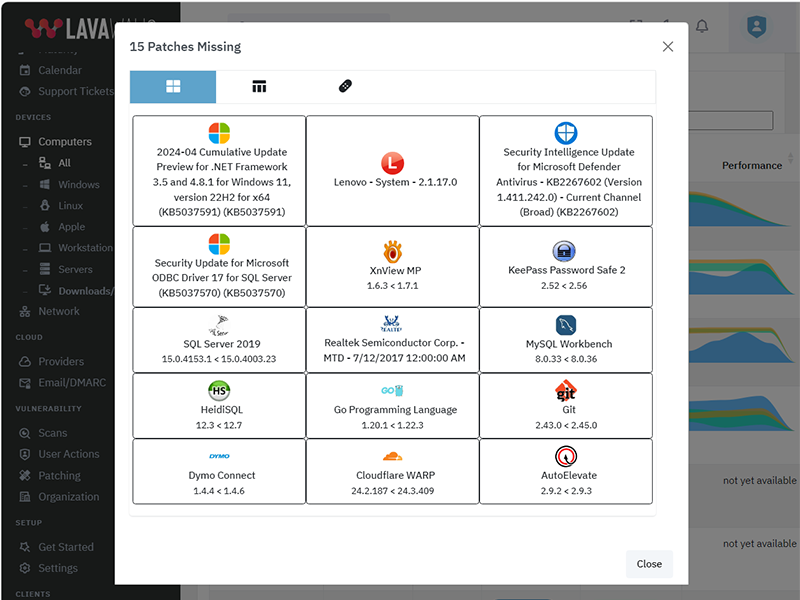
The above listing includes products that Lavawall® monitors through public information and/or proprietary statistical analysis.
Although we do have a partner relationship with some of the listed products and companies, they do not necessarily endorse Lavawall® or have integrations with our systems.
Learn More

Flexible Term; Flexible Service
Flexibility for your dynamic business
You need to get your arms around compliance and security and don't want to get locked into “high watermark” monthly invoices or multi-year contracts.
Pay-as-you-need monthly pricing
DIY, full management, and coaching options
CMMI, PCI, SOC2, Canadian Cybersecurity, Minimum Viable Secure Product, and other compliance support
Choose the plan that's right for you
Simple pricing. No hidden fees. Advanced features for you business.
Month
Annual
Get 2 months free with Annual!
DIY
Security-focused RMM
C$3.25 /computer/Month
C$32.50 /computer/Year
-
1 computer
or 1 of the following cloud integrations:
AWS, Axcient, Connectwise, Datto, Google, Huntress, M365, Sophos Central integrations
(each integration counts as 1 computer) -
150+ application patches
-
30-day Logs
-
Security configuration monitoring
-
Anomaly detection
-
CMMI, MVSP, CyberCanda compliance
-
Lavawall® support
-
Sophos MDR: C$13.50/desktopSophos MDR: C$162/desktop
-
Huntress: C$5.40/deviceHuntress: C$64.80/device
-
Available white-label support for end users
-
Level 3+ IT support for IT
-
Weekly IT coaching sessions
Managed Security & Support
Unlimited end-user support
C$160 /user/Month
C$1,600 /user/Year
-
1 computer/user
Additional devices charged at DIY prices -
AWS, Axcient, Connectwise, Datto, Google, Huntress, M365, Sophos Central integrations
-
150+ application patches
-
90-day Logs
-
Security configuration monitoring
-
Anomaly detection
-
CMMI, MVSP, CyberCanda compliance
-
Lavawall® support
-
Sophos MDR Essentials
-
Huntress
-
White-label email and phone support for end users
-
Level 3+ IT support for IT
-
Weekly IT coaching sessions
-
Automatic discount and upgrade to Support & Coaching after 15 users
Support & Coaching
Improve your IT performance
$2,250 /Month
$22,500 /Year
-
25 computers included
Additional computers charged at DIY prices -
AWS, Axcient, Connectwise, Datto, Google, Huntress, M365, Sophos Central integrations
-
150+ application patches
-
90-day Logs
-
Security configuration monitoring
-
Anomaly detection
-
CMMI, MVSP, CyberCanda compliance
-
Lavawall®-only support
-
Sophos MDR Essentials
-
Huntress
-
White-label email and phone support for 15 users included Additional: C$150/user Additional: C$1,500/user
-
L3 IT support for IT
-
Weekly IT coaching sessions
Frequently Asked Questions
If you can not find answer to your question in our FAQ, you can always contact us or email us. We will answer you shortly!
General Questions
- Two years after a missing Plex Media Server led to the LastPass breach, the
Remote Monitorign and Management (RMM) tools availabel for Manged IT Service Providers (MSPs)
still didn't monitor for it.
Going through industry-specific applications, we noticed many were missing from the big RMM and patching providers. MSPs, insurance providers, and organizations that put their cleints at risk need to know about these risks, which lead to the largest number of critical audit findings and breaches - After 20 years of writing the same audit findings about system configurations, Payment Card Industry (PCI) compliance, and missing patches, our technical co-founder wanted to make it easier fo avoid these findings
- The existing risk visibility tools for insurance underwriters took a shallow look at Internet-facing risks. They -- along with all businesses -- need a deeper view of the threats that could actually lead to breaches.
- Domain risks
- Operating System (OS) patches
- Application patches
- Network vulnerabilities
- Cloud vulnerabilities
- OS configurations
- Axcient*
- Cloudflare
- Connectwise Screen Connect
- Datto RMM
- FreshDesk*
- Huntress
- Microsoft 365
- Panorama9
- ZenDesk
You can use your own logo for the console and notifications. You can also use a CNAME to automatically brand your console.
Note: you cannot currently re-proxy the CNAME to Lavawall® through Cloudflare.
Privacy & Security
However, we do allow passwords and use passwords as part of the zero-knowledge encryption for your clients' sensitive data, such as Bitlocker keys and Personally-Identifiable Information (PII).
These passwords use Argon2id slow hashes with individual salts and peppers.
We have added an additional secure tunnel that mimics the TLS process within the public TLS tunnel. This extra tunnel provides authentication and privacy for the workstations and the Lavawall® servers to prevent attacks such as the one that took down Solar Winds.
Remote access is not enabled for read-only and audit situations.
Get In Touch
Have a quick question and don't want to talk? Send us a quick note with the form below and we'll reply within one business day.
NW Calgary:
ThreeShield Information Security Corporation
600 Crowfoot Crescent N.W., Suite 340
Calgary, Alberta
T3G 0B4
SE Calgary:
ThreeShield Information Security Corporation
105, 11500 - 29th St. SE
Calgary, Alberta
T2Z 3W9
Canada

